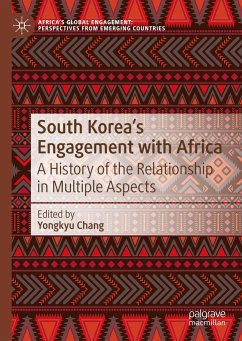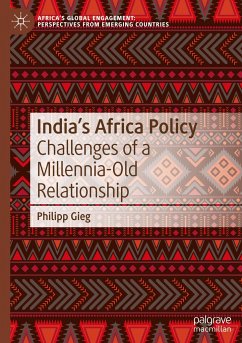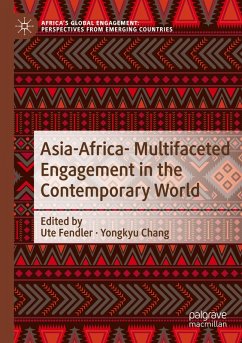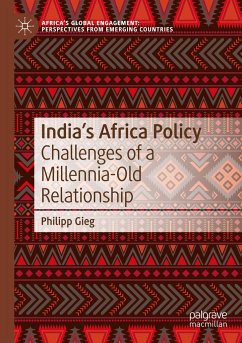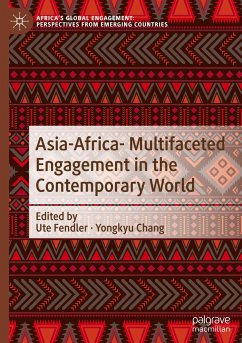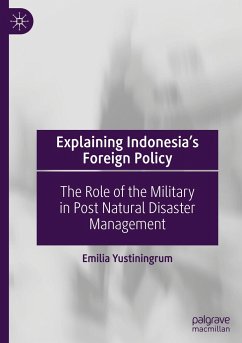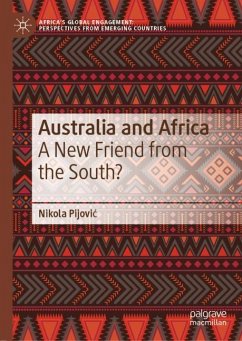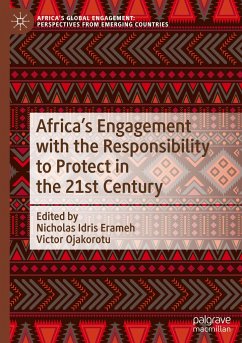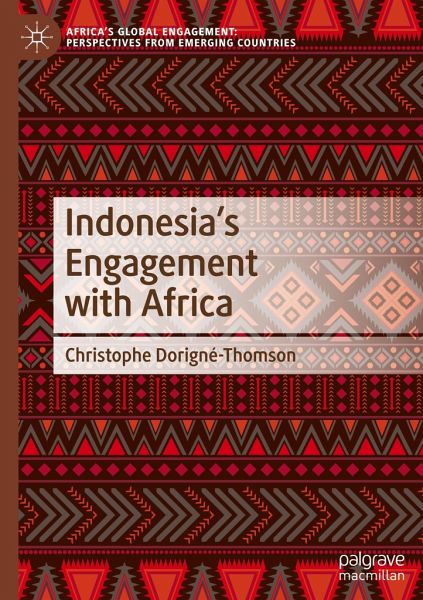
Indonesia's Engagement with Africa
Versandkostenfrei!
Versandfertig in 6-10 Tagen
91,99 €
inkl. MwSt.
Weitere Ausgaben:

PAYBACK Punkte
46 °P sammeln!
This book provides a comprehensive study of Indonesia's contemporary foreign policy engagement with Africa, highlighting the archipelago's recent reawakening to the continent. It explores thoughts on Afro-Asian relations in general and their future in the changing geopolitical context. It provides a vision of Indonesia's foreign policy and political situation at the highest level of leadership. It places Indonesia in a multi-comparison context, which helps us reconsider Indonesia today and widens our views on Indonesia's needs to be better known through new perspectives and voices able to bett...
This book provides a comprehensive study of Indonesia's contemporary foreign policy engagement with Africa, highlighting the archipelago's recent reawakening to the continent. It explores thoughts on Afro-Asian relations in general and their future in the changing geopolitical context. It provides a vision of Indonesia's foreign policy and political situation at the highest level of leadership. It places Indonesia in a multi-comparison context, which helps us reconsider Indonesia today and widens our views on Indonesia's needs to be better known through new perspectives and voices able to better convey the realities of its polity, aspirations, and complexities. It proposes, through the study of Indonesia's African endeavour, to better grasp the contemporary Indonesian Zeitgeist and Weltanschauung. It also analyses the political power alliance formed by President Jokowi and former General Luhut Binsar Pandjaitan, leading a state-led developmentthrough state capitalism, mobilising State-Owned Enterprises (SOEs). The Bandung Conference host aspires to project its domestic development achievements towards Africa, focusing on Africa for Africa and not merely as part of a sometimes-abstract Afro-Asian discourse. Nonetheless, Afro-Asianism continues to be mobilised to facilitate market penetration and serve domestic interests.
The book shows how Indonesia's foreign policy toward Africa relates to domestic political contestation and consolidation, political legacy and commodity-based industrial policy, and Chinese and "China in Africa" networks and ideational influence, foremost among other networks of influence in the Jokowi era. The book also underlines how Indonesia's knowledge production and academic deficiencies negatively impact its foreign policy capabilities, notably as a potential robust alternative partner for Africa. It will be beneficial for students, academicians, researchers, and diplomats.
The book shows how Indonesia's foreign policy toward Africa relates to domestic political contestation and consolidation, political legacy and commodity-based industrial policy, and Chinese and "China in Africa" networks and ideational influence, foremost among other networks of influence in the Jokowi era. The book also underlines how Indonesia's knowledge production and academic deficiencies negatively impact its foreign policy capabilities, notably as a potential robust alternative partner for Africa. It will be beneficial for students, academicians, researchers, and diplomats.




